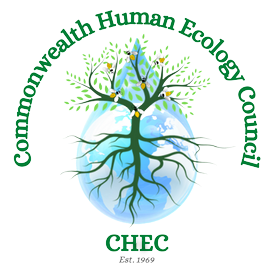An Interview with Ian Douglas, Trustee and former Chairman

Ian Douglas is a geographer with a far-reaching interest in the humid tropics. After four and a half years at Oxford University he went to the Australian National University to write a Ph.D. thesis on the influence of climate on erosion. This took him to the rainforests of the Cairn-Atherton Tableland area of North Queensland. He was then employed by the University of Hull, in part to lecture about S.E. Asia, and spent 18 months in Malaysia while there. “I became aware of the erosion problems in rapidly expanding tropical cities at that time and my interest of the urban environment and urban ecology began there.” Ian says.
In 1971, Ian returned to Australia as Professor of Geography at the University of New England. He was actively involved in applied projects helping local communities and advising the Federal and New South Wales Governments. Eight years later, he moved to the University of Manchester and remains there still, having taken early retirement in 1997 and being an Emeritus Professor since then.
Ian has a great interest in human ecology and he has been involved in many associations and bodies concerned with the environment. Between 1999 and 2007 he served as Chairman of the CHEC Governing Board, where he did a great job in starting and developing new projects around the Commonwealth. Ian is still a member of the Governing Board and a significant asset to the organisation.
Could you please tell us when you first became involved with CHEC and what attracted you to the organisation?
In 1993, I was invited by Zena Daysh to help organize a meeting in Manchester in parallel with a meeting called by HM UK Government to look at progress in establishing Local Agenda 21 internationally. She was given my name by Denis Dwyer (then Treasurer of the Commonwealth Geographical Bureau) who had been a colleague of mine at Hull. Zena and David Hall came up to Manchester several times before that conference to organise space of the meeting and gain recognition of CHEC’s contribution to the official meeting. Later they asked me to become a Governing Board Member. I then helped them organise other meetings, both in the UK and before CHOGMs, for example, in Auckland NZ and Durban, SA. I was attracted by CHEC’s mission to deliver projects and the active project programme it had at the time. It was good to meet CHEC’s Commonwealth partners. I was also attracted by the calibre of the people that originally set up CHEC, people such as Barton Worthington, Robert Steele and Professor Unnithan.
What field within human ecology are you particularly interested in?
I am particularly interested in urban ecology, an interest that began in Kuala Lumpur in 1966 but which expanded following my 1983 book on the urban environment. I joined the UK Man and Biosphere Urban Forum around 1988 and eventually had two periods as Chairman of that Forum. I became internationally involved in urban ecology projects through SCOPE and the Commonwealth Geographical Bureau, visiting people in informal settlements in Nairobi and Lusaka. Later, I involved the Urban Forum in the 2009 Human Ecology Conference in Manchester in partnership with CHEC and the Society for Human Ecology, SHE. The UK Urban Forum asked me to produce the Handbook of Urban Ecology which was so successful that a second edition is now ready for publication. Making towns and cities good places for everyone to live in is a worthwhile aim!
What do you believe is CHEC’s biggest achievement?
CHEC’s early years had some remarkable achievements; highlighting the importance of living in harmony with the environment before sustainability became fashionable and mainstream. The pioneering human ecological studies of people and environment in Malta, the Iwokrama project in Guyana in 2005, and the many activities of CHEC India are all great achievements.
This year, CHEC is focusing on education as a tool towards sustainability. Why do you believe education could be a key towards a sustainable future?
In the time when we see school strikes about climate change, the importance of giving young people the opportunity to understand what is happening to our world is more significant than ever. For decades, I have argued that we need to tell people about how the environment where we live works. I believe primary children should be able to answer the question “What happens to the rain that falls on the school roof?” We need to be sure that we are not repeating messages that have already been heard: there are new things to think about: what happens to all the worn out televisions, computers and mobile phones? What are the consequences of getting the rare earth metals used in our electronic devices? Who suffers because bananas are so cheap in our supermarkets?
In your opinion, what environmental issues should CHEC continue to raise awareness of?
Besides the issues discussed above, CHEC should continue to raise awareness of waste and how people around the world is constantly creating new forms of waste. Often the waste includes complex medical chemical compounds that most water quality monitoring systems cannot detect. We need to think about the environmental costs of consumption: things like cheap clothing, often manufactured by people working in terrible conditions, using materials that when dumped are harmful to the environment.
CHEC also needs to continue thinking of sustainable ecosystems: the work on bees and pollinators is an excellent example of this, but urban agriculture, sustainable fisheries, and protecting mangroves, both for the future of fisheries and to protect against rising sea levels, are all important.
Human ecology is basically about living in ways that keep our ecosystems healthy and able to support future generations: there is still a lot of work to do.
